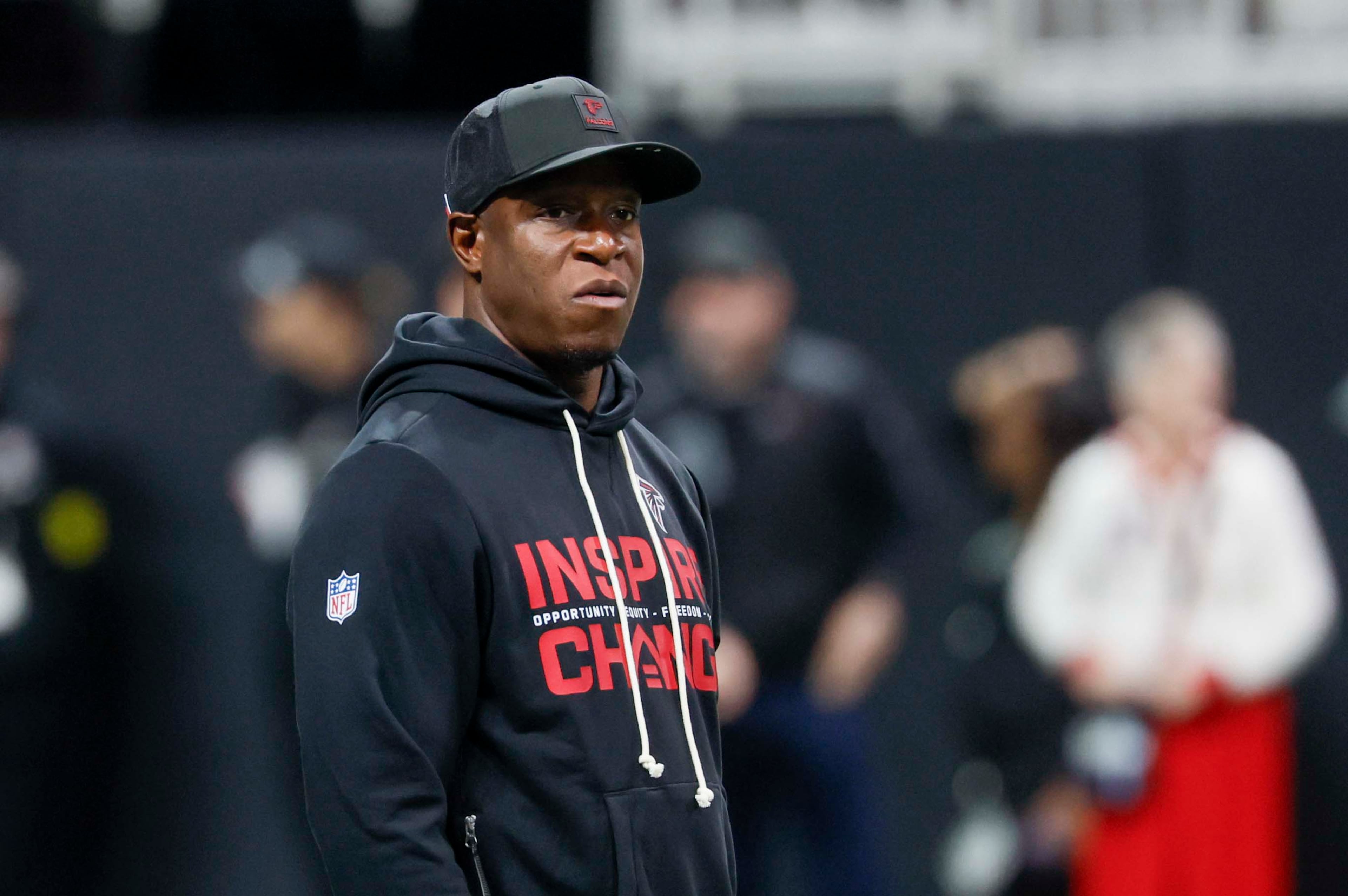After calling team soft, Atlanta United’s Ronny Deila running short of options

Less than halfway through his first season, Ronny Deila gave his team a label that practically is a scarlet letter.
After his team’s 1-0 loss to Philadelphia on Saturday at Mercedes-Benz Stadium, the Atlanta United manager called his team soft. There are worse things that a coach or manager can call his or her team, but the list is short.
“We need to be honest, we are soft in both boxes,” Deila said. “There is no killer instinct.”
And it wasn’t just that Deila called his team (with accuracy) soft in general. He said players are soft in the 18-yard boxes, which quite arguably is worse because those are the most critical parts of the field. It’s like saying, “I like Waffle House, but I don’t like their waffles.”
Every sports fan has seen this play out with a team on the decline. At first, the head coach/manager says nothing is wrong. After that comes, “It’s a long season.” Then the culprit is something beyond the team’s control, like injuries or the schedule, with an accompanying affirmation that everyone is confident and working hard.
That’s followed by an admission that the team actually is playing poorly “but we’ll be fine” with a plan of how play is going to improve. (“We just need to be more consistent.”) Then there’s growing aggravation and more pointed criticisms. And finally, throwing hands in the air and admission that things are really bad.
It’s sort like the Kübler-Ross stages of grief, except with uniforms and scoreboards.
On April 26, after the team was punished in a 3-0 road loss at rival Orlando, Deila was recorded telling his players in a team-produced video that “Next week, we will be a totally different team. I know it. I’ve seen it 100 times.”
The next week, Atlanta United did end its franchise-record 363-minute streak without a goal, but managed only a 1-1 home tie with Nashville. Delia lamented that the team played more passive after it scored. Fast forward two more weeks and three more winless results later, and Deila had ventured beyond territory he’d seen 100 times.
“For me, I’ve never been through this before in my career,” he said after Saturday’s loss. “When you feel you’re into many of the games, but I feel we are weak all the time. I feel that’s something (bad) is going to happen, and it does.”
That’s where Atlanta United is, and Deila is not yet to the halfway point of his first season.
And, if you’re not aware, Deila is not some young flavor of the month. The Norwegian came to Atlanta United with a strong track record, having won six trophies as a head coach in more than 17 years, including in MLS with New York City FC.
Nor is this a roster of inexperienced upstarts. The club has spent about $50 million in transfer fees in recent windows to upgrade the attack, notably this offseason’s purchases of Emmanuel Latte Lath and Miguel Almiron. There are players with national-team experience up and down the lineup.
At the very least, this is a team that was designed to compete for the MLS Cup after having been an increasing afterthought in the league for the past five seasons.
Instead, it is in 14th place in the 15-team Eastern Conference, having scored 14 goals in 14 games. It’s on an eight-game winless streak. At Mercedes-Benz Stadium, where once the Five Stripes were all but unbeatable, they are 2-3-3 at home. One of their two wins this season was over Montreal, the last-place team in the Eastern Conference.
On Saturday night, Deila sounded very much like a man at the end of his rope.
“I just feel that the longer the match goes, we get more and more passive,” he said. “We come out with a good energy, we are all over them and then we get control, but you just see it drop and drop consistently until you wonder when the assassin is coming to stab you. Then, we get hit and have a little bit of a reaction, but the last eight to 10 minutes, I don’t see any anger. I see frustration.”
All this to ask, what is there left for Deila to do with this roster? After you call your players soft, if they don’t respond, there aren’t a lot more cards left to play.
Deila’s unmuted aggravations also could be interpreted this way — that he has the backing of team president and CEO Garth Lagerwey and Chris Henderson, his newly appointed chief soccer officer and sporting director.
It wouldn’t make sense — or at least not in the manner of owner Arthur Blank — for Lagerwey to invest as much capital as he has in remaking the franchise but jettison a proven coach in his first season.
Assuming he values his job, Deila might not be willing to publicly chide players that his superiors selected unless he knew that they saw it as he did and were willing to make changes on his behalf. (Though, if they’re soft and passive, it’s reasonable to ask why they’re on the roster in the first place and how is it that so many of them came to earn spots on their respective national teams.)
If that’s the case, it’s possible that the coming July transfer window could bring significant change to reshape the roster in a way that Deila wants.
And, in that way, Deila’s postgame venting about soft players could be less “Woe is me” and more a signal to players that their time may be limited.
Atlanta United next plays May 25 at home against Cincinnati.
The clock may have begun ticking, but probably not for Deila.



